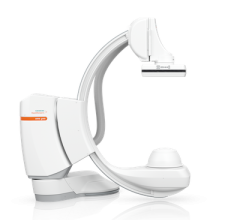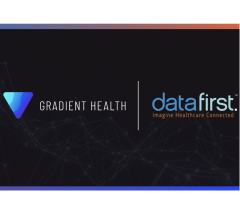
Critical advancements in modern technology will play an integral role in progressing the Future of Healthcare, according to a new survey sponsored by Polycom, Inc. (Nasdaq: PLCM). The study, which polled more than 1,000 healthcare industry professionals from around the world, anticipated that over the next decade, a growing and aging population globally will lead to challenges in quality healthcare, including funding, easy access and a strain on current healthcare infrastructure. However, according to the research, technology developments, such as mobile, the Internet of Things (IoT) and big data, offer a promising opportunity for overcoming healthcare bottlenecks by 2025.
”Healthcare delivery is evidently shifting in light of challenges such as physician shortages and rapidly aging societies, and requires digital transformation in order to cope with the pressures placed on the industry,” said Ron Emerson, global director, healthcare at Polycom. “In recent years, it has become clear that technology holds the key to the future of healthcare. The survey findings highlight how the industry can best integrate and utilize game-changing technological developments, to accelerate telemedicine or telehealth applications, to maximize its potential and realize new models of care delivery by 2025.”
Despite potential hurdles for the industry, the study recognized senior technologists must take a seat at the boardroom table to ensure technology is integrated correctly, so as to achieve the digital transformation needed to move from treating only the sick to prevention and wellness.
The study polled healthcare professionals segmented by occupation (practitioners, nurses, administration, management), and survey responses were consistent in their opinion of the major inhibitors.
Challenges and Opportunities
Funding: Healthcare funding is lacking, inhibiting the availability of new technologies and proper facilities across the board. The funding of new technologies will support the healthcare revolution. More information available in the most recent Polycom Blog.
Access: With a large percent of the world’s population living in rural areas, access to healthcare is significantly limited. By 2025 primary care will be accessible to all citizens, regardless of distance thanks to the increased availability of broadband, mobile devices and applications.
Government Support: Respondents were cautiously optimistic with regard to regulators, believing that government agencies are already in the process of amending their policies in response to rapid innovations within the healthcare landscape.
Aging population: Regionally, respondents believe an aging population and heavy demand on health service infrastructure poses the greatest challenge to healthcare in 2025.
According to the survey, technology integration is a major opportunity to address these challenges. The survey also found that by 2025 primary care will be accessible to all citizens, regardless of distance thanks to the increased availability of broadband, mobile devices and applications. Healthcare professionals globally shared a positive outlook that technology, such as personal health monitoring devices and video collaboration solutions, will play a vital role in reducing hospitalization and treatment costs as well as treating patients virtually in the home. Healthcare professionals also noted collaboration across the extended care team, as well as with the patient and family, is critical.
Methodology
Findings from this survey were based on feedback from over 1,200 healthcare professionals between October 2014 – April 2015. In APAC, respondents from Australia (43.87%) and India (27.23 percent) made up the majority; in EMEA, it was the UK (50.46 percent) and France (19.88 percent); and all respondents from North America came from the United States.
For more information: www.polycom.com


 December 01, 2025
December 01, 2025 









